Players’ Decisions Not to Participate in Bowl Games Could Be Start of a Revolt in College Football
LSU’s Leonard Fournette, Stanford’s Christian McCaffrey and Baylor’s Shock Linwood do not want to risk their pro football futures. Their decisions to sit out the postseason make sense and could become a trend.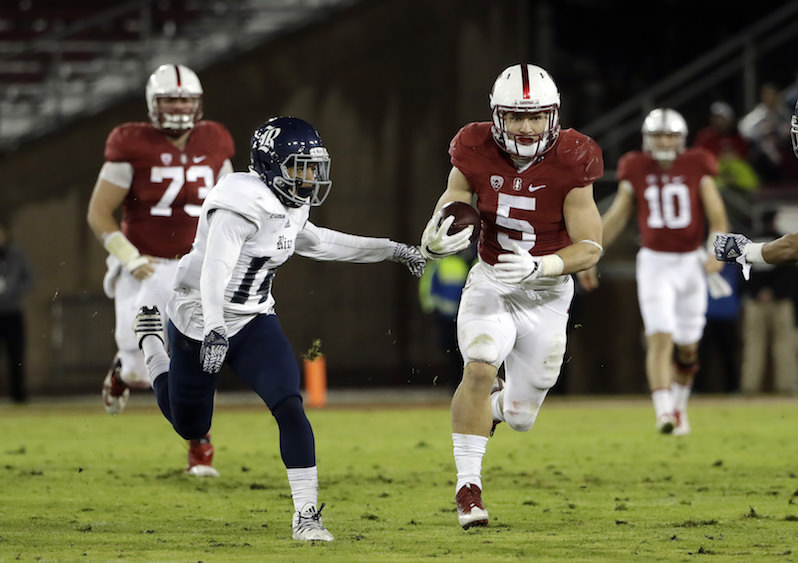
Stanford running back Christian McCaffrey (5) is a versatile football player with a diverse array of skills as a rusher, receiver, kickoff returner and punt returner. (Marcio Jose Sanchez / AP)
The biggest story so far of the college football season has been played down by the college sports media and their friends in athletic PR departments: Louisiana State University’s Leonard Fournette, Stanford University’s Christian McCaffrey and Baylor University’s Shock Linwood announced they would not risk their pro football futures by playing in their schools’ postseason bowl games.
All three, I should mention, play football. Fournette is the best running back in the nation. He was generally regarded as the leading Heisman Trophy contender before reinjuring his ankle in LSU’s opening game against Wisconsin, which caused him to miss three games this season. Nonetheless, he rushed for 843 yards for an impressive 6.5 yards per carry average. Except for the question of his ankle, no scout regards Fournette as anything less than the highest-rated running back available in this year’s NFL draft, though the question of the nagging injury may knock him down to a second- or even third-round draft pick.
McCaffrey is very nearly as good a runner as Fournette. Over the past two seasons, McCaffrey has rushed for more than 3,600 yards and averaged over 6 yards a carry. He would have had more had he not missed the Notre Dame game due to an undisclosed injury. More than that, he has been perhaps the most versatile player in college football, a superb receiver and better-than-average kick and punt returner.
Linwood is not quite in the class of Fournette and McCaffrey, but he was good enough to average 5.5 yards a carry this season. He, too, has had injury problems, missing last year’s bowl game with a bad foot.
There is no precedent in college football history for players to decide not to play in their school’s bowl game.
Though many have accused them of disloyalty to their teams, all three men are dyed-in-the-wool fans and boosters of their schools and their football programs. (McCaffrey’s father played for Stanford’s football team, and his mother was a soccer star at the school.) But this year, all three came to the same conclusion, apparently all on their own, not to play one more game for free.
The world of college football hasn’t quite absorbed the meaning of this yet. There has been little discussion of the impact of their decision on television, which depends on college football bowl game ratings this time of year. There have been some newspaper articles and a swarm of stories on the internet and remarks on Twitter, but no one wants to call it what it almost certainly is: the beginning of the revolt in which players assert their dominance in the game of college football.
None of the three is doing this with the idea of making some kind of statement. In fact, none of the three has said much about their announcement at all except to say that they don’t want to risk their NFL futures. Their coaches are wary of fanning the flames of a possible rebellion, at Stanford, especially, where receiver Trent Irwin tweeted that the entire Cardinal team “supports @CMccaffrey5 at anything and everything.”
Fournette, perhaps stung by the reaction from one of the most volatile fan bases in college ball, replied that he owed no more to Tiger fans and teammates and that from here on in, “the only person I owe anything to is my daughter.”
And though many LSU fans choose to see it another way, there can be no rejoinder to Fournette’s tweet. None of his critics, after all, is offering to pass the hat for a fund to raise and educate his daughter if he again bangs up his ankle, the most common injury for running backs—or even his knee when the Tigers play the Louisville Cardinals in the Citrus Bowl this Saturday.
A hushed few are asking if Fournette, McCaffrey and Linwood will start a trend that will reverberate through the ranks of college football. There are two answers to that: (1) We can only hope so, and (2) It’s about time.
For decades, colleges have maintained that they simply can’t afford to compensate players, that the costs of fielding a team—the training facilities, extra coaches, traveling expenses, et al.—are too great. They said this back in the early 1970s when teams were playing 10-game seasons with some lucky enough to get invitations for the few postseason bowls. They said it in the mid-1970s when the NCAA approved adding an 11th game to the regular-season schedule. They said it in the 1980s when the number of bowls mushroomed. Finally, they said it again in the 1990s when most conferences added more teams and a 12th game to their regular season, and then tacked on a conference playoff game, a totally meaningless exercise since after 12 regular-season contests, conferences already knew the best team in their league.
This year, the top four teams in the country—Alabama, Ohio State, Clemson and Washington—will have a 14th game to play this Saturday in the first round of the college football playoff. The two winners will meet in the championship final on Jan. 9.
And so, over the last four decades, some schools have gone from playing 10 or 11 games to 12, 13, 14 and even, in the case of the two finalists, 15 games. And guess what—the schools still don’t have enough money to pay the players. And they never will.
Some observers of the hugely popular and profitable college playoff system now want to expand to four more teams and two more games. I wonder if Fournette’s, McCaffrey’s and Linwood’s choice to miss their bowl games will put a damper on the clamor for more playoffs? It certainly should. If other major college stars also conclude that it’s in their own economic interests to skip the games, how long before ratings and then revenue for postseason games decline?
Some indignant people on the internet are arguing that the colleges are better off without big stars whom they accuse of being disloyal enough to leave their teams before their biggest games. I think there are two answers to that, too: (1) If ratings and ticket sales for games played without the best-known players don’t decline, then why does it matter if the stars bolt for the NFL? (2) If ticket sales and ratings do decline, it proves the players’ value and that the colleges were wrong in not paying them.
It will be interesting to see which way this turns out after LSU, Stanford and Baylor play their bowl games. But whatever happens, you can be sure that Fournette, McCaffrey and Linwood are just the first of what is bound to be a growing exodus of the best college players from the postseason.
Independent journalism is under threat and overshadowed by heavily funded mainstream media.
You can help level the playing field. Become a member.
Your tax-deductible contribution keeps us digging beneath the headlines to give you thought-provoking, investigative reporting and analysis that unearths what's really happening- without compromise.
Give today to support our courageous, independent journalists.
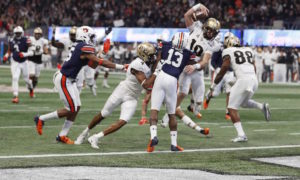
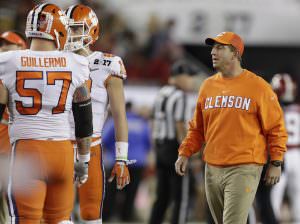
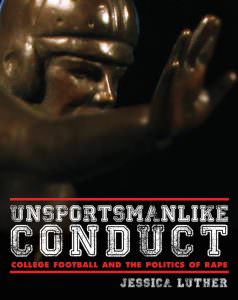
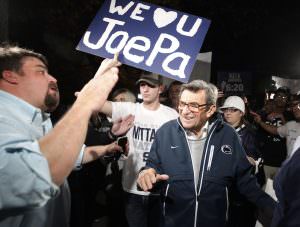

You need to be a supporter to comment.
There are currently no responses to this article.
Be the first to respond.